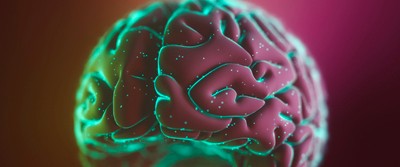Forget the Strain, Train Your Brain

By Kevin Ritchart
If you find that you’re often easily distracted, it might have little to do with external stimuli like crowds, ambient noise, or the temperature of the room where you’re sitting. The answer to being more attentive could very well lie between your ears.
A new study, published earlier this year in Neuron, suggests that brain waves tell us a lot about how the brain focuses attention.
Yasaman Bagherzadeh, a neuroscientist, from the Massachusetts Institute of Technology (MIT), helped lead the study. Her team monitored the brain activity in 20 adults with the goal of finding out how brain waves might affect attention.
The MIT team employed a device that identifies and records the magnetic fields associated with brain waves. One variety of brain waves, known as alpha waves, pulse at a rate of approximately 10 times per second. Alpha waves play a part in the brain filtering out distractions, according to Bagherzadeh.
During the study, participants sat beneath a brain wave monitoring device and looked at a computer screen. Each person was shown a pattern of lines in the middle of the screen. At first, these lines looked somewhat blurry.
The participants were instructed to look at the lines and try to make them less blurry, but they weren’t told how to accomplish this. They were essentially playing a game without being told the rules.
Researchers used the lines on the screen to give each participant feedback about their alpha waves in real time. The pattern of lines got clearer when participants changed their brain waves based on the instructions they received from researchers.
Without realizing it, participants changed their alpha waves. Researchers found that strengthening alpha waves on one side of the brain changed the way participants focused their attention in later tasks.
Because of how the brain is wired, when you look to the right, the left side of the brain responds. As alpha waves strengthen, people are less likely to pay attention. By reducing alpha waves in the left side of the brain, it’s easier for people to focus on something that’s happening on their right.
With that in mind, researchers had participants attempt to make alpha waves stronger on one side of their brains and weaker on the other. Half were asked to make the alpha waves stronger on the right, and the other half were asked to make them stronger on the left. If participants shifted the strength of their brain waves as instructed, the fuzzy lines on the computer screen became clearer.
The goal of the study was never to train one side of the brain to concentrate better than the other. Researchers want to learn how to change brain waves to boost attention, how long the attention boost lasts after training, and whether other types of brain waves play a role.
Discussion Questions
- What are some examples of times when you find it difficult to pay attention?
- What kinds of things can you do to help improve your focus?
Vocabulary
- neuroscientist
- brain wave